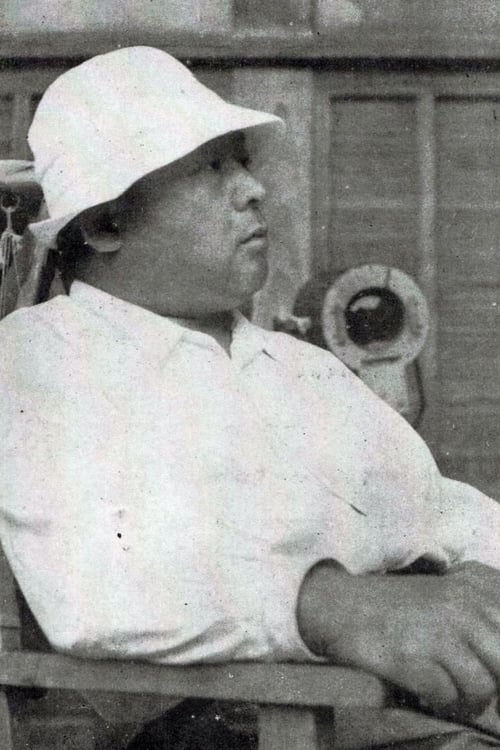Hiroshi Shimizu
出生 : 1903-03-28, Shizuoka, Japan
死亡 : 1966-06-23
略歴
From Wikipedia, the free encyclopedia.
Hiroshi Shimizu ( March 28, 1903 – June 23, 1966) was a Japanese film director, known for his silent films with detailed depictions of Japanese society. He was born in Shizuoka and attended the Shochiku studio in Tokyo where he began making films in 1924, at the age of just 21. A friend and colleague of Yasujiro Ozu, he is believed to have directed at least 166 films during his career. He died of a heart attack on June 23, 1966, at the age of 63. Though respected in his time, today he is largely unknown, even in his native Japan. In 2008, Shochiku released two box sets which include eight of his films. In 2009, a Criterion Collection box set of four of his films was released.
Description above from the Wikipedia article Hiroshi Shimizu (director), licensed under CC-BY-SA, full list of contributors on Wikipedia.
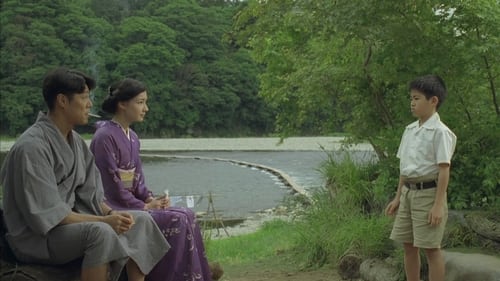
Scenario Writer
目の不自由な按摩(あんま)、徳市(草なぎ剛)と福市(加瀬亮)が温泉場へと徒歩で向かっていると、2人の横を東京から来た三沢美千穂(マイコ)を乗せた馬車が通り過ぎていく。宿屋に呼ばれた徳市は、客が馬車の女と直感。美千穂の様子にほのかな恋心を覚えた。しかしその翌日、宿屋で宿泊客の財布が盗まれ、犯行時刻付近に宿にいた美千穂が疑われる。

Kawamata is a psychotic soldier who fell in with the Russian Special Operation Forces. It was at this time that Kawamata became the guinea pig for this secret scientific research organization. The Russians wanted to ensure that they were ahead of the U.S. in the arms race, and used this organization to develop a mobile combat suit, armed to the teeth with all kinds of weapons imaginable. During his tenure on the project, Kawamata met Matsuzaki, a twisted scientist who was kicked out of Japan...

Director

Director

Director
In Asakusa, Tokyo, a couple of a violinist Yamano and a revue dancer Hanae lives in poverty. One day Hanae’s little sister rolls into their apartment and begins to stir things up with her riotousness.

Director

Writer
While working in an education center for lonely children, a mother seeks her missing son.

Director
While working in an education center for lonely children, a mother seeks her missing son.

Screenplay
A young man steals money for a cabaret singer.

Director
A young man steals money for a cabaret singer.

Screenplay
The day to day life in an establishment for delinquent teenage girls.

Director
The day to day life in an establishment for delinquent teenage girls.

Director
Based on the novel by Kojin Shimomura. Story of a young boy and his adventures in the country. His idyllic life is shattered by the illness and death of his mother.

Screenplay
Based on the novel by Kojin Shimomura. Story of a young boy and his adventures in the country. His idyllic life is shattered by the illness and death of his mother.
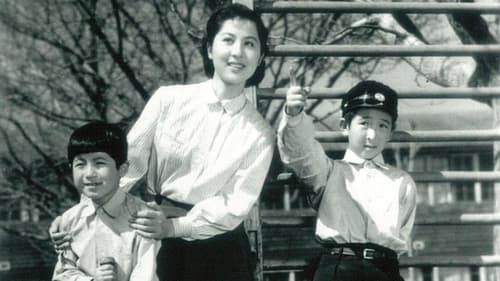
Writer
A university professor and his wife have two sons with infantile paralysis. Through trial and error, they struggle to open a school for disabled children at their own expense. Based on a true story, it features natural child performances under Hiroshi Shimizu’s skillful direction.

Director
A university professor and his wife have two sons with infantile paralysis. Through trial and error, they struggle to open a school for disabled children at their own expense. Based on a true story, it features natural child performances under Hiroshi Shimizu’s skillful direction.

Screenplay
A human billboard and a shoeshine girl met a kid of five who got separated from her mother at a street of Ginza. They try to find a mother in a crowded town...

Director
A human billboard and a shoeshine girl met a kid of five who got separated from her mother at a street of Ginza. They try to find a mother in a crowded town...

Director
Short documentary film on the architecture and history of Nara Kofuku-ji and Todai-ji temples.

Screenplay

Director

Writer

Director

Writer

Director

Screenplay

Director

Director
A bar girl tries to pass her three children, each from a different father, to rural relatives.

Screenplay
A bar girl tries to pass her three children, each from a different father, to rural relatives.

Screenplay
Saheita, the final heir of a once rich and respectable family, can't refuse the many villagers that come to him for favours and money, even though he is on the brink of bankruptcy. Around town he is better known by his nickname Mr. Shosuke Ohara.

Director
Saheita, the final heir of a once rich and respectable family, can't refuse the many villagers that come to him for favours and money, even though he is on the brink of bankruptcy. Around town he is better known by his nickname Mr. Shosuke Ohara.

Director

Director

Screenplay
The movie focuses on the plight of ten war orphans hailing from different cities across Japan. With nowhere to go, they scavenge around train stations, scratching out an existence by means of black market work for a one-legged tramp whilst avoiding being picked up by the police for vagrancy. Soon however, they find a more inspiring role model in the figure of a nameless soldier just repatriated after the war. An orphan himself, the soldier also has no home to return to, and so sets out across the country with the kids in tow in search of work before settling on the goal of leading them to the orphanage where he himself grew up.

Producer
The movie focuses on the plight of ten war orphans hailing from different cities across Japan. With nowhere to go, they scavenge around train stations, scratching out an existence by means of black market work for a one-legged tramp whilst avoiding being picked up by the police for vagrancy. Soon however, they find a more inspiring role model in the figure of a nameless soldier just repatriated after the war. An orphan himself, the soldier also has no home to return to, and so sets out across the country with the kids in tow in search of work before settling on the goal of leading them to the orphanage where he himself grew up.

Director
The movie focuses on the plight of ten war orphans hailing from different cities across Japan. With nowhere to go, they scavenge around train stations, scratching out an existence by means of black market work for a one-legged tramp whilst avoiding being picked up by the police for vagrancy. Soon however, they find a more inspiring role model in the figure of a nameless soldier just repatriated after the war. An orphan himself, the soldier also has no home to return to, and so sets out across the country with the kids in tow in search of work before settling on the goal of leading them to the orphanage where he himself grew up.

Director
Hisshoka is a 1945 Drama film directed by four Japanese directors.

Writer
Hisshoka is a 1945 Drama film directed by four Japanese directors.

Director
Based on the true story of a 17-year old Atayal girl called Sayun Hayun from Nan'oku village, Giran district, Taihoku Prefecture (in current Taiwan) who went missing and was thought to have drowned whilst helping carry the luggage of her teacher Masaki Takita during a storm in 1938.

Director
Ravana, while dancing with animals, kidnaps Sita from Rama, and returns to Lanka to hide as Lankapura burns.

Director
A group of female doctors travel to a remote village during their summer holiday to offer free medical care to villagers. There they must battle prejudice and superstition as much as disease.

Screenplay
Emi Ota and her friend Okiku stay briefly at a mountain inn and then return to Tokyo. Later, Nanmura, a soldier on leave, steps on an ornamental hairpin in the public bath at the inn. Emi writes to the inn saying she has lost a hairpin and, when she discovers that it injured Nanmura, returns to apologize. The longer term visitors at the inn meet together to discuss the hairpin incident. These include a grumpy Professor, a young couple Mr and Mrs Hiroyasu, and an old man staying with his two grandsons. They hope to see a romance blossom between Nanmura and Emi, after Nanmura declares that there is something almost poetic in finding a hairpin in the bath.

Director
Emi Ota and her friend Okiku stay briefly at a mountain inn and then return to Tokyo. Later, Nanmura, a soldier on leave, steps on an ornamental hairpin in the public bath at the inn. Emi writes to the inn saying she has lost a hairpin and, when she discovers that it injured Nanmura, returns to apologize. The longer term visitors at the inn meet together to discuss the hairpin incident. These include a grumpy Professor, a young couple Mr and Mrs Hiroyasu, and an old man staying with his two grandsons. They hope to see a romance blossom between Nanmura and Emi, after Nanmura declares that there is something almost poetic in finding a hairpin in the bath.

Director

Screenplay
A city boy moves to the countryside and the kids there pick on him.

Director
A city boy moves to the countryside and the kids there pick on him.

Director
Uta’s mother died when she was six years old; her father she never met. She was forced to adopt a traveller’s life when her grandmother died, and now she is a dancer and part of a family of actors who travel from town to town, setting up street performances. A way of escape from this marginal existence arises when she gets the chance to move to tea merchant Hiramatsu’s place, where she is asked to teach his daughter to dance.

Screenplay
A reformatory in the remote countryside houses 200 delinquents and problem children. The teachers and caretakers face much trouble. The school is often short on water, and one day, the well runs dry.

Director
A reformatory in the remote countryside houses 200 delinquents and problem children. The teachers and caretakers face much trouble. The school is often short on water, and one day, the well runs dry.

Screenplay

Director

Director
This documentary was produced on the request of the Korean railway-organisation during the Japanese occupation of Korea. The news-coverage in those days was aimed at strengthening the public opinion that Korea and Japan were indissolubly allied. This film, as many other films in those days, was meant to clearly propagate this pact. However, the director of this film, Shimizu Hiroshi, only shows streetscenes. He films without the ideology that was so common in this kind of films. He registers the people in the street in their daily occupations.

Director
A spirited young teacher challenges the conservative school employing her with liberal thinking and teaching methods.

Screenplay
Weed with Flowers

Director
Weed with Flowers

Director
A follow-up to Children in the Wind, Four Seasons of Children(a.k.a. Kodomo no Shiki) is also based on a Tsubota Joji novel. The film is divided into two chapters, following the young protagonists' minor adventures and real-world awakenings over spring and summer, then autumn and winter.

Director
Two childhood friends go their own ways but meet again some years later after they have both married. They get re-acquainted, meet each others’ families, and all is well. Then the disagreements start...
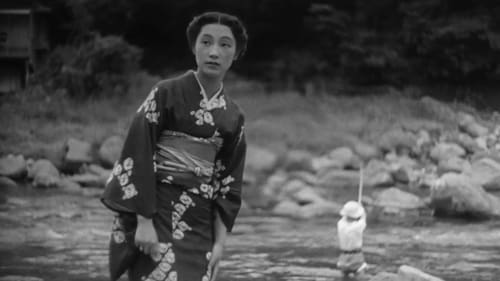
Screenplay
A pair of blind masseurs, an enigmatic city woman, a lonely man and his ill-behaved nephew—The Masseurs and a Woman is made up of crisscrossing miniature studies of love and family at a remote resort in the mountains. With delicate and surprising humor, Hiroshi Shimizu paints a timeless portrait of loneliness and the human need to connect.

Director
A pair of blind masseurs, an enigmatic city woman, a lonely man and his ill-behaved nephew—The Masseurs and a Woman is made up of crisscrossing miniature studies of love and family at a remote resort in the mountains. With delicate and surprising humor, Hiroshi Shimizu paints a timeless portrait of loneliness and the human need to connect.

Director
On vacation's eve, a boy is sent to the countryside to live with his uncle after his father is imprisoned and accused of embezzlement.

Director
A 1937 Japanese film.

Director
Yuki is a young, single mother supporting herself and her son, Haru, with a job as a bar hostess.

Director
A penniless orphan loses the woman he loves, when her family arranges a marriage to a wealthy playboy. He believes she was blinded by greed, and becomes a miser.

Director
During college military training exercises, the bond between two friends and athletic rivals is tested when one of them becomes involved with a woman who may be a prostitute.

Screenplay
A 1937 Japanese film.

Director
A 1937 Japanese film.

Screenplay
昭和の名匠・清水宏監督が、川端康成の短編小説「有難う」を上原謙主演で映画化したロードムービー。伊豆地方の美しい自然を背景に、バス運転手と乗客たちが織り成す人間模様をユーモラスに描く。道を譲ってくれた人々に「ありがとう」と声を掛けることから、「ありがとうさん」と呼ばれて親しまれているバス運転手。そんな彼のバスに、貧しさから東京に売られていく娘とその母親、訳ありの女、威張り散らすヒゲの紳士らが乗り込んでくる。(eiga.com)

Director
昭和の名匠・清水宏監督が、川端康成の短編小説「有難う」を上原謙主演で映画化したロードムービー。伊豆地方の美しい自然を背景に、バス運転手と乗客たちが織り成す人間模様をユーモラスに描く。道を譲ってくれた人々に「ありがとう」と声を掛けることから、「ありがとうさん」と呼ばれて親しまれているバス運転手。そんな彼のバスに、貧しさから東京に売られていく娘とその母親、訳ありの女、威張り散らすヒゲの紳士らが乗り込んでくる。(eiga.com)

Director
A Japanese film

Story
A Japanese film

Director
The story focuses on the widower Nemoto, ostensibly a businessman, who has one son, Kanichi, the hero of the title. Nemoto remarries; his new wife is a widow with a son and daughter of her own. However, Nemoto’s business turns out to be out a shady scam, and he disappears, leaving his wife to raise the three children alone. In order to support the family, she is obliged to become a bar hostess. She conceals this shameful employment from the children, but the truth comes out years later, after her daughter is rejected by her husband’s family when they investigate her background.

Director
The story is centered around the devastating experiences of two villagers, Osaki Shuichi, and his cousin, Nishimiura Kinue, when they leave their hometown for the metropolis of Tokyo. They are in love with each other, but Kinue is expected to marry the lawyer Kanda Seiji. In consequence, Shukichi leaves for Tokyo, where he becomes tutor to the son of the rick Iwaki family. The heartbroken Kinue also makes her way to the capital, where she becomes a bar hostess.

Director
The story deals with Fuji, nicknamed Waka-danna (Young Master), the star athlete on his university's rugby team. The son of a wealthy soy sauce manufacturer, Fuji basks in the glory of his athletic celebrity. Attracting the attention of admiring young women, Fuji resists family pressure to settle down and marry after college. Instead, he spends much of his time drinking and womanizing, behavior which eventually leads the college officials to expel him from the team.

Director
Set in the port city of Yokohama, two girls, Sunako and Dora who attend a Christian school, pledge to be friends. But when a youth named Henry appears on his motorcycle and offers to take Sunako for a ride, we know that this friendship won't last and that the lives of both girls will change in ways they are barely able to comprehend, and can do little to change.

Director
Kenji and Chuko travel to Hokkaido as migrant workers and enlist as miners under the strict leadership of Guzuyasu. On the boat journey to Hokkaido, Kenji attracts Ohama, who is travelling to Hokkaido to open a bar. When Kenji visits the bar, he chases away a sailor who was hassling a shy girl, Ofuji, which makes Ohama jealous.

Director

Director
Part two of Shimizu's major silent Seven Seas, a family drama of the intertwining fates of the rich, decadent Yagibashis and the far less prosperous Sone family.

Director
Film by Hiroshi Shimizu, featuring an early role for frequent Ozu and Naruse collaborator Hideko Takamine.

Director
The film is a lengthy work interweaving characters from different backgrounds and social strata in a narrative centered around the experiences of its heroine, Yumie Sone. Over two hours long, Seven Seas was released theatrically in two parts, with the first part entitled "Virginity Chapter" coming out in December 1931, while the second part, "Chastity Chapter," followed in March 1932. Near the beginning of the narrative, at a garden party given by the wealthy Yagibashi family in Tokyo, Yumie meets Takehiko, the Yagibashis' playboy son and the brother of Yumie's fiancé, Yuzuru. Yumie, a young middle-class woman, lives with her ailing father, a retired ministry official, an older sister, and a younger sister still a child (played by a very young Hideko Takamine). Takehiko, who has just returned from a trip to Europe, is attracted to Yumie and contrives to have her stay overnight at his family's mansion where he takes advantage of her.

Director
Created by Shochiku’s cultural film department on behalf of the Ministry of Education, this film tells an ironic anecdote juxtaposing the fate of a cooper’s son with that of the son of a middle-class salaried worker, and championing the virtues of honest poverty and diligence. An educational film preaching a fable-like message, it is however filled with humorous scenes that offset the film’s didacticism. Original director Yoshio Nishio fell ill and was replaced halfway through the shooting by the admired filmmaker Hiroshi Shimizu; though finished in May 1931, the film was shelved and never given a general release. Shot as a silent film, this version of the film features musical accompaniment, sound effects, and a spoken commentary track by a benshi narrator, thus bearing witness to the variety of forms taken by sound film during this transitional period.

Director
Michiko gets pregnant after a rape. She marries a boring business partner of her father to avoid the shame. Later she meets the rapist again who is now a union leader in opposition of her husband.

Director
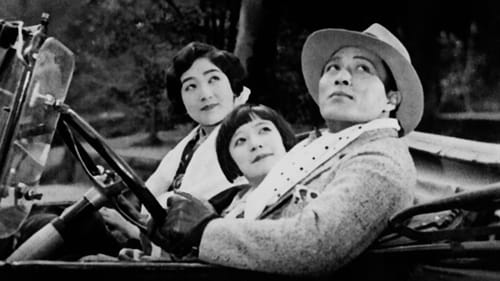
Story
Kenji is a small-time thief who likes drinking and fighting. When he falls in love with sweet and simple Yazue, and she finds out what kind of guy he really is, she leaves him "until he becomes an honest person." Kenji soon finds it's not easy to get rid of one's past.

Story
Tetsuo Nomoto, a young graduated student tries to find a decent job by himself. Later on, he will marry his girlfriend, Machiko, whom he hides the fact that he has no job. Hardships come quickly, which forces Machiko to find a job in a bar. [Partially lost film; only 12 minutes survive.]

Director
A Japanese short film, the earliest extant film of the great director Hiroshi Shimizu

Director
Short feature by Hiroshi Shimizu.

Director
Toshie, a young, conservative secretary-typist has fallen in love with Shozo Narita, a young man she has met through her work.

Director

Director
Early feature film by Hiroshi Shimizu.

Director
Debut film by Hiroshi Shimizu.
